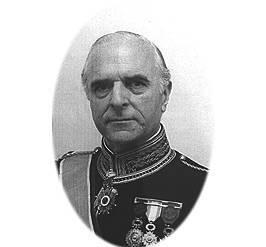
Sanz Briz (1910, Zaragoza) was a young diplomat during Franco’s regime, who carried out his duties as Spain’s Chargé d´Affaires in Budapest, between the years 1943 and 1944. He managed to accomplish so much during this short time, that he became known as a heroe of humanity.
Without an order from his government, Sanz Briz used all his possible resources to avoid thousands of people from being taken to the Auschwitz and Birkenau gas chambers. He cooperated with Raoul Wallenberg, who later was imprisoned and then disappeared in 1945 captured by the Soviet army; and together with the Papal Nuncio Angelo Rota; the Swiss Consul, Carl Lutz and many other diplomats that together formed a secret mesh that helped to save people.
Amongst his most faithful collaborators was Jorge Perlasca, an Italian friend who proclaimed himself Spanish ambassador when Sanz Briz was obliged to end his mission towards the end of 1944, and who saved thousands from being deported to extermination camps.
Working without pause, thanks to his determination and courage, Sanz Briz issued thousands of letters of protection, which guaranteed immunity to the bearers.
When he was questioned by pro nazi authorities or by Adolf Eichmann himself – in charge of the ”Final Solution” in Hungary- he replied that these were documents to be given only to Sephardic Jews, because Franco´s government acknowledged their right to posses the spanish nationality.
Many years later in Federico Ysart´s book ”Spain and the Jews,” Sanz Briz says, ”I turned the two hundred unities that I had been granted, into two hundred families; the two hundred families multiplied themselves indefinitely, thanks to the simple procedure of not issuing any document or passport with a number higher than 200”.
Of the approximately 5.200 Jews saved by Sanz Briz, only a minority was of Spanish origin.
On October 16th, 1994, a plaque in his memory was uncovered, facing the Parque San Esteban (Saint Stephen’s Park), in one of the houses in Budapest, which had been the refuge of hundreds of Jews. In Spain, his face and name are on a commemorative stamp, part of a series dedicated to human rights.
Translation: María Pensavalle
